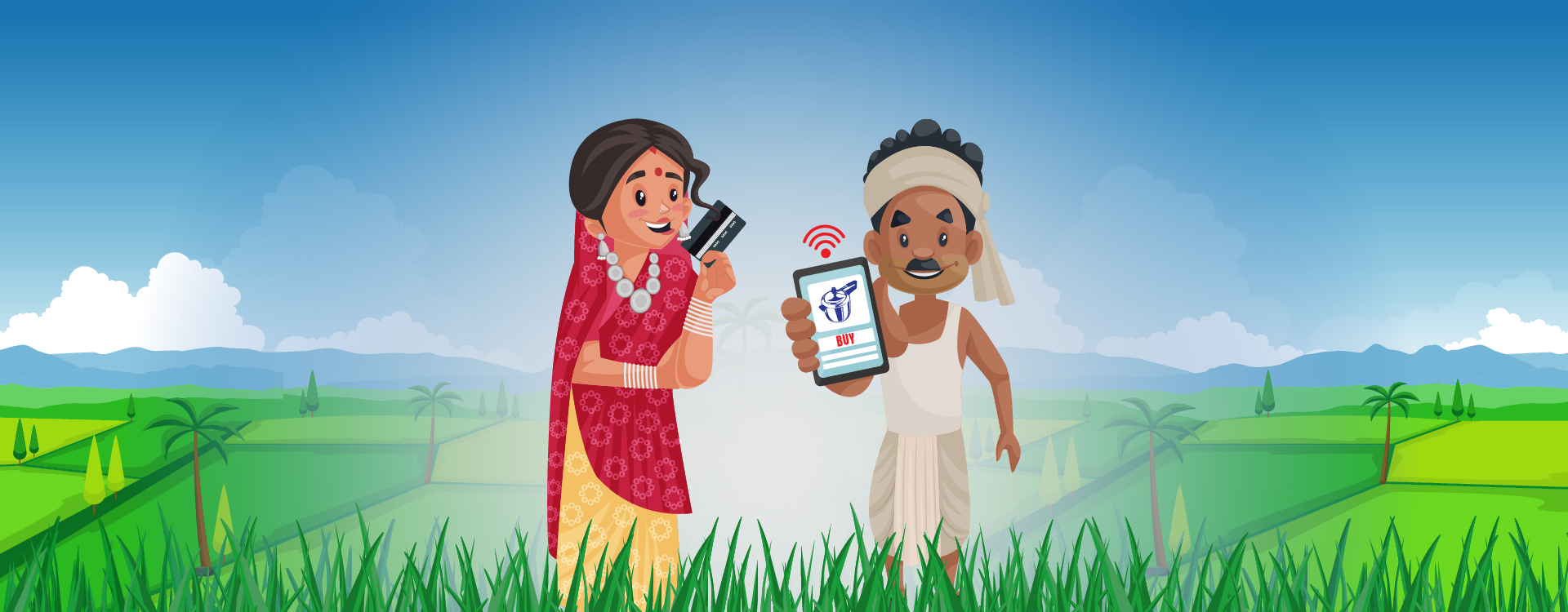It is good news for the MSME businesses to foray into the rural e-commerce market that has long remained untapped. According to a joint study titled “Digital in India” conducted by the Internet & Mobile Association of India (IAMAI) and research firm Nielsen, the number of internet users in rural areas is 227 million active users that have surpassed the user base of 205 million in tier-1 cities. Moreover, with initiatives like Digital Bharat and Digital Village, the government is enabling the rural population to use digital banking, payment services and providing internet access as a tailwind for rural e-commerce growth.
The newfound love for e-commerce or online shopping among rural people can be attributed to increasing aspirations. The limited number of brands available in brick-and-mortar shops in smaller cities and towns is what creates the love for branded products, to which e-commerce MSMEs can capitalise by introducing a wide array of products at discounted rates. This gives rural shoppers not just branded products at low prices but also more value in features, and trends thus luring more rural customers to shop online.
‘‘
According to a joint study conducted by the Internet & Mobile Association of India (IAMAI) and research firm Nielsen, the number of internet users in rural areas is 227 million active users that have surpassed the user base of 205 million in tier-1 cities.
Segments where MSMEs can look to serve the rural e-commerce market
Shopping without touch and feel is something to which rural shoppers are alien, therefore the first step that MSMEs need to take while tapping into rural e-commerce is customising applications in vernacular content. As 88 percent of the population is non-English speaking, developing regional language across various touch points such as mobile apps, customer service is crucial for increasing trust in online shopping. Here are some of the segments that MSMEs can look to tap in rural:
- Last-mile delivery and logistics: Remote parts of India are devoid of good roads making it difficult to have a well-defined logistics network. To serve this market, MSMEs will have to develop a distributed logistics network using a pool of local people as delivery agents. This strategy will induce effective cost management and access. MSMEs can also explore alternate delivery models such as the use of crowdsourcing platforms to connect businesses to non-professional couriers that can deliver goods instantly.
- Assisted E-commerce: The rural shoppers are yet not tech-savvy with the smartphone functions and online shopping processes. Small and medium-sized e-commerce companies can create assisting groups of individuals that will enable them to shop online from digital catalogues. MSMEs can also leverage Kirana stores, cooperative banks and kiosks that will collect bulk orders through company apps.
- Products for rural consumers: Considering their low disposable incomes, the price point will play a crucial role in online shopping. The product catalogue of a rural e-commerce platform should have a mix of both branded and unbranded products since unbranded they have been buying to date and the transition to a brand will take time. This will help alleviate the shopping experience for rural people by creating the right category-product mix.
Startups serving the rural e-commerce market
Boonbox is a Chennai-based logistics startup that offers last-mile delivery to customers staying in remote locations that do not have pin codes or proper addresses. Boonbox fulfills customer demand by taking orders through affiliates who have downloaded the Boonbox App. After receiving orders, they source the products from the OEM (Original Equipment Manufacturer) through a hub-and-spoke logistics capability and deliver the products at customers’ doorsteps in remote areas.
Frontier Markets a social tech enterprise operates on an assisted commerce model through its network of rural women entrepreneurs known as Saral Jeevan Sahelis. Similar to Boonbox app, the women use The Meri Saheli app to demonstrate products, facilitate online sales, and collect insights into the requirement of rural families. The platform offers a wide range of products in FMCG, Agri, durables, electronics, and digital services for doorstep delivery.
Besides, e-commerce, social commerce apps like DealShare, ShopG, Meesho, SimSim are offering an interactive video shopping experience to promote the community group buying model. Such platforms are offering multi-category consumer products at lower prices targeting the non-metro and middle-income Indian consumers.
What lies ahead for startups in the rural e-commerce market?
On the back of rising smartphone and internet penetration, the e-commerce market is projected to grow at a compounded annual growth rate (CAGR) of 19.6 percent between 2019 and 2023 to $100 billion as PwC. The numbers showcase the future of online shopping and can prove to be lucrative for rural e-commerce startups to venture into the underserved markets. Not just FMCG and grocery but consumer durables, doorstep delivery of agricultural products such as seeds and fertilisers, and medicines will find ample business opportunities in the rural e-commerce market.




